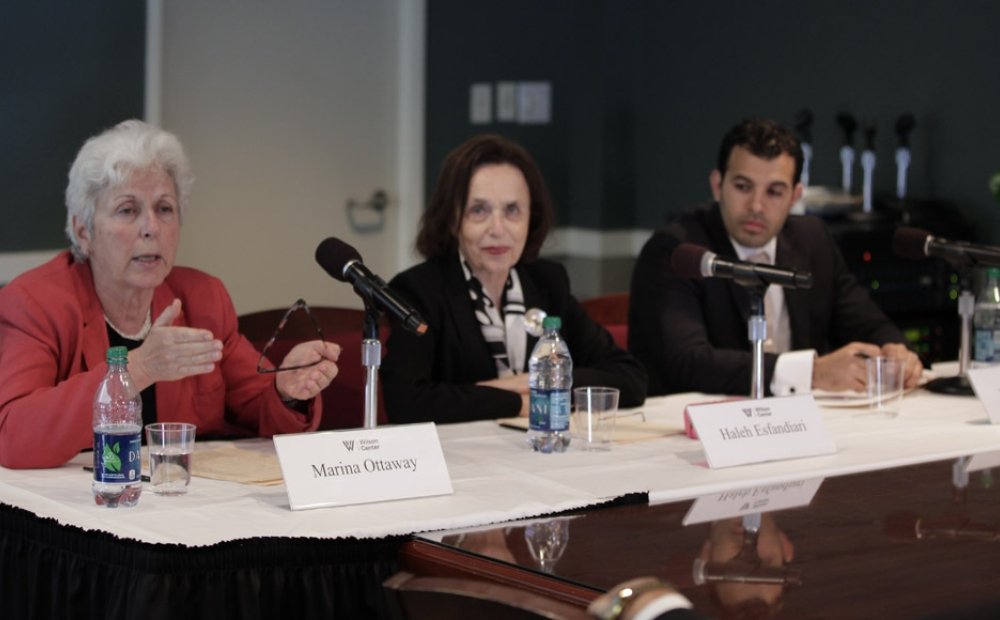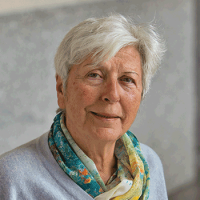Egypt: Political Challenges for the Youth Movement

Jawad Nabulsi, CEO and co-founder of the Nebny Foundation in Egypt, discussed the efforts of his youth-based NGO to address political trends and social issues.
On May 24, the Middle East Program hosted a meeting, “Egypt: Political Challenges for the Youth Movement,” with Nabulsi. Marina Ottaway, Senior Scholar at the Wilson Center, provided introductory commentary. Haleh Esfandiari, Director of the Middle East Program at the Woodrow Wilson Center, moderated the event.
Ottaway introduced the event, pointing out the political imbalance that exists in government between the Islamists and the opposition; this is the “greatest threat to the future of democracy in Egypt.” She observed that “the opposition in general has not found its stride” when compared to the political success of Islamist parties. While the Salafist Al-Nour Party “mobilized social networks into a political machine” and put up campaign posters, most secular-liberal opposition parties relied on street demonstrations as an informal method of political mobilization, which did not garner as many votes. Now, Ottaway said, the opposition continues to rely on street mobilization, which is seeing diminishing returns due to mental and economic fatigue. They are also increasingly using the courts “to circumscribe the power of Islamist parties,” which is contributing to a worrying trend of the politicization of the judiciary. She asserted that youth, the drivers behind oppositional street demonstrations, need to shift from protesting to political organizing in order to balance the system.
Nabulsi agreed with Ottaway’s last assessment, noting that “unless we institutionalize our efforts, in a matter of a year we will be drained.” He expressed a need for NGOs and opposition groups to have long-term planning and funding sources in order to compete politically and, more importantly, to show measured change in responding to the basic needs of Egypt’s poor, whose concerns drove much of the revolution. He outlined several ways his own NGO, Nebny Foundation, was trying to reach these goals. He discussed how they “go to an area that needs help and just work on it,” recounting that his NGO has so far helped over 20,000 families in the slums of Cairo with housing and economic concerns. Second, he discussed the foundation’s efforts to institutionalize by hiring full-time employees, seeking local sustainable sources of funding, and establishing more branches in Egypt and the United States.
Regarding social change, Nabulsi said, “opposition is one way, but people want to find solutions.” He brought up the ethical dilemma that he and other youth leaders face: when the opportunity arises for a position in government, all youth leaders should ask if they have solutions for the problems. He said that it is tempting for many to take a political position in the hopes of being able to effect change and shape policy from an oppositional viewpoint, but that no one should take such a position if they do not have the proper knowledge to deliver on their promises of change. To address this need for youth capacity-building, his NGO is also working to provide technical solutions, offering professional development courses on how governments work and how to budget. He hoped such efforts would also address the legislative aspects of specific issues, such as health care, gas subsidies, and electricity, so that a legislation support council can pass along their research to make politicians better informed about the issues on which they are voting. In addition, he said, the foundation is working on a “youth list” for the next parliamentary elections in October to provide suggestions to voters on which youth activists could be capable drivers of grassroots-based legislation.
By Laura Rostad, Middle East Program
Speakers

Former Senior Research Associate and Head of the Middle East Program, Carnegie Endowment for International Peace
Hosted By

Middle East Program
The Wilson Center’s Middle East Program serves as a crucial resource for the policymaking community and beyond, providing analyses and research that helps inform US foreign policymaking, stimulates public debate, and expands knowledge about issues in the wider Middle East and North Africa (MENA) region. Read more
